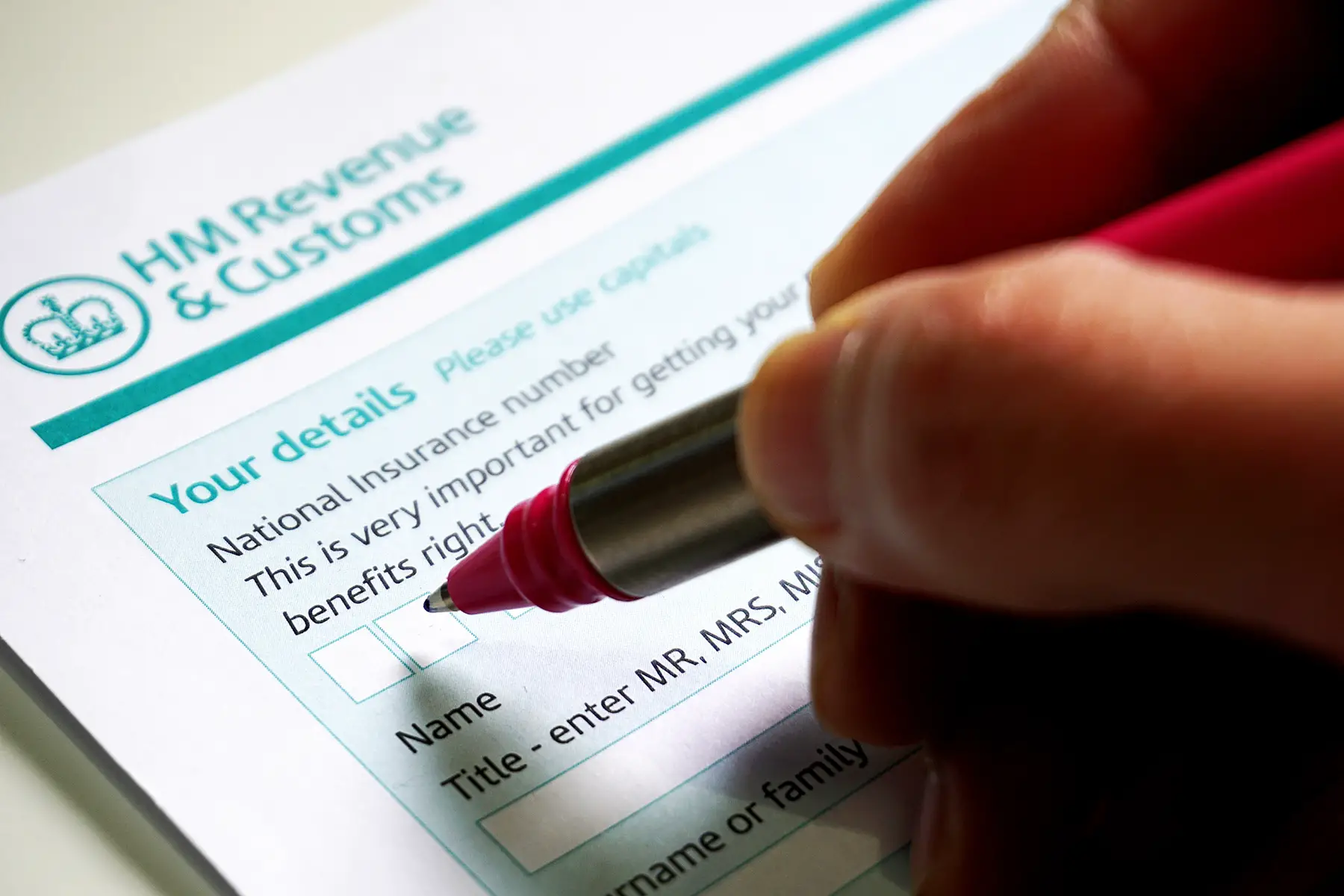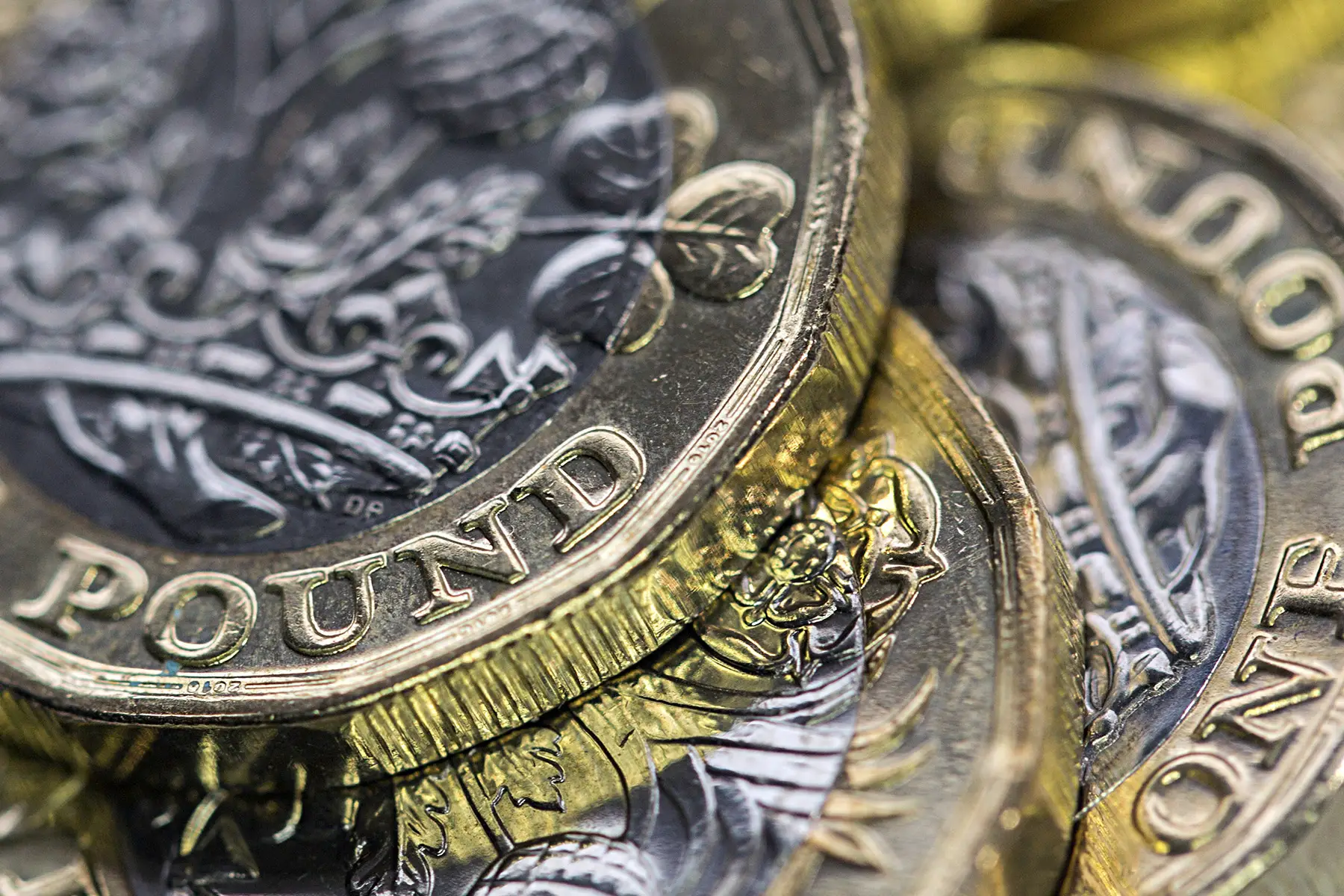
When do you become liable to pay freelance tax in the UK? Get to grips with the UK tax system for the self-employed.

By Keith Fernandez
A government survey found that 4.1 million people work for themselves in the UK. If you’re one of them, you will be liable to pay freelance tax in the UK and register for self-assessment. When you’re self-employed or own a business in the UK, you may have to pay several different kinds of taxes, including income tax and value-added tax (VAT).
The UK government has rules for off-payroll working (IR35) that apply to some self-employed workers (and the businesses hiring their services). Additionally, Brexit has implications for UK freelancers who work with EU businesses. Use this guide to understand self-employed and freelance tax requirements, including:
In need of some expat financial advice in the UK? Knowing where to turn for trusted advice can be challenging, but with Unbiased you'll be able to find the right financial advisor for your needs. Search by your needs and access a network of over 26,000 professionals across the UK. Find financial advisors, accountants, and more with Unbiased.
As part of its remit as the UK’s tax, payment, and customs authority, HM Revenue and Customs (HMRC) collects and allocates taxes and disbursements for self-employed workers.
Although freelancing is a popular style of working, the term does not exist for tax purposes. Instead, you are classified as a sole trader, a partner in a business, or by trading through a limited company. HMRC offers a handy guide to figuring out the different ways of working for yourself and determining your self-employment status.
Overall, anyone working for themselves in the UK – either as a sole trader or a business partner – must pay income tax, National Insurance contributions (NICs), and possibly also VAT. Taxes are paid by filling out a self-assessment return every year. The same tax rates apply to residents and non-residents alike. While there are some minor rule variations between the two groups, the primary difference is that residents pay taxes on their worldwide income whereas non-residents are only taxed on their UK-based income.

How to start a business in the UK
There are a number of factors that determine your tax residence status: if you stay in the UK for at least 183 days, own British real estate, or work in the United Kingdom, you may be considered a resident for tax purposes.
If you’re trading as a limited company, on the other hand, you become liable for corporation tax in the UK. An entirely different set of rules apply in this case.
Everyone who earns money from business activities or through work in the UK – for oneself or for someone else – must pay income tax. In both cases, how much you pay depends on what you earn: a set of progressive tax bands determines the amount payable. Additionally, tax bands in Scotland vary slightly from rates in England, Wales, and Northern Ireland.
The amount of income tax you will pay as a self-employed professional in the UK, or sole trader, depends on how much money you made and the allowable expenses you have incurred. You can easily calculate your profits by deducting your expenses from your income. There are certain business-related expenses that you can subtract from your income when calculating your taxable profit.

How to file income taxes in the UK
As a sole trader, all business profits belong to you personally. Tax on profits as a sole trader will be added to your other personal income and assessed at your personal tax rate. You can find information on tax bands in our article on income tax in the UK.
Business partnerships in the UK do not pay tax. Instead, each partner pays tax on their share of business profits via a personal self-assessment form. As an individual, each partner is entitled to the standard personal allowance of £12,570, as well as any other deductions and reliefs that may be applicable, before paying income tax and NICs at prevailing rates.
Business profits are calculated after deducing expenses such as rent, professional fees, costs of sales, and business equipment. In addition, one partner must be nominated as the responsible party for tax and reporting purposes. This partner must fill in and file the self-assessment partnership tax return form (SA800) on behalf of the business each year. Further, partnerships that expect to achieve more than £85,000 in turnover must also register for VAT.
A few other types of partnerships exist in the UK, with similar tax requirements. Consult a tax accountant for specific advice concerning your situation. The British government also offers a wealth of information on self-assessment forms.
Whereas the sole trader business is an extension of the individual, limited companies are legal entities in their own right. Thus, the limited company must have separate bank accounts and records, and any profits earned belong to the company, not the individual. After paying the corporate income tax in the UK – 25% on net earnings in most cases – the remaining profits may then be distributed among the members or shareholders. Recipients must claim their distributions on a self-assessment form. Large companies face some additional compliance and reporting requirements.
As a company director, you can pay yourself a salary. Accordingly, you pay personal tax and NICs through the company’s PAYE scheme. As a company shareholder, you may also be able to pay yourself dividends. There are several specific tax rules concerning such payments, as well as additional benefits such as the use of company cars, vouchers, and so on.
If off-payroll working rules apply to you, the private organization you are providing your services to (your client) as a limited company director will determine your employment status for tax. Check the UK Government website for more information.
As someone running their own business, you are legally obliged to tell HMRC about it if you earned more than £1,000. You can do so online. The deadline to register is 5 October of the business’s second tax year. For example, if you started your business in June 2023, you would need to register with HMRC by 5 October 2024. You may be fined for not doing so in time.
When you register, HMRC will send you a letter with your 10-digit Unique Taxpayer Reference (UTR) and then set up your account for the self-assessment online service. You will also receive a letter within 10 working days (21 days if you are abroad) that contains an activation code. Using this code and the UTR number, you can finish the registration process online, via the HMRC website. You will also be asked for information about your business, such as the trading name and contact details.
You can also register to pay UK freelance tax by post.
You can deduct several different business expenses before you pay freelance tax in the UK. You only need to pay taxes on profits earned from business activities.
HMRC considers several different costs as allowable expenses. These include the following:
Allowable expenses do not include money taken from your business to pay for private purchases.
If you own property and use it for a holiday letting business, many expenses related to operating the property-related business – including mortgage expenses – can be used to reduce reportable income. In order to claim these expenses, the property must be available for letting for at least 210 days per tax year, and it must be let out for at least 105 days, with no party letting it for more than 31 days.

If you run your own limited company, you need to follow different rules. You can deduct any business costs from your profits before tax. You must report any item you make personal use of as a company benefit.
HMRC does not allow you to deduct the depreciation of fixed assets from any source of income. In most cases, however, businesses can apply specified rates of annual deduction, called capital allowances, to certain asset classes. These include equipment, cars, machinery, and so on. A special regime also applies to intangible assets, such as patent rights, know-how, and trademarks, and goodwill. Read HMRC’s guide for more information.
Sole traders or partners with an income of £150,000 or less a year may benefit from using a simpler system called cash basis.
When calculating freelance tax in the UK, you should also look to claim deductions when working from home. If you use your home as your office, for example, you can deduct what HMRC calls a reasonable amount. So, if you use one of the four rooms in your home as an office for a full working week, it’s reasonable to claim 25% of relevant home costs. These would include a proportion of rent or mortgage interest, utilities such as gas, electricity, metered water rates, as well as council tax, insurance, telephone bills, and broadband usage.
In some cases, it can make sense to register your business as a private limited company (Ltd) or a limited liability partnership (LLP) instead of continuing to trade as a self-employed professional. Doing so may reduce the taxes you need to pay. Sole traders or freelancers pay personal income tax at progressive rates up to 45%. Limited companies, on the other hand, pay corporation tax on any profits at 25%, while dividends to shareholders are tax-free up to £500. Such a combination may reduce your PAYE and NIC outgoings.
In addition, limited companies can usually claim a greater range of business expenses than sole traders can. However, it’s important that you speak to an accountant before making any decisions, as HMRC have strict rules about what can be claimed.

Corporate tax in the UK
The rules for corporation tax are different from freelances taxes in the UK. As with freelance taxes, you don’t get a bill for corporation tax but will need to calculate and pay this yourself on the HMRC website before the deadline. However, the deadline is usually nine months and one day after the end of the accounting period, while the deadline for your income tax return remains the same as for other workers.
As a freelancer or self-employed professional, you pay income tax after deducting allowable business expenses. You’ll need to file a self-assessment tax return online by 31 October of the following year. HMRC will then send you a bill. If you filed your return online, this is displayed up to 72 hours after you have sent in your returns. If you made a postal declaration, you will receive a bill by post. 31 January is the deadline to pay the tax you owe.
In some cases, you may have a second payment deadline if you make advance payments, known as payments on account. Such payments are due twice each year, usually by midnight on 31 January and 31 July.
You can pay in several different ways:
Missing any of these deadlines incurs both a penalty and an interest payment. If the deadline falls on a weekend or bank holiday, make sure your payment reaches HMRC on the last working day before the deadline.
As a freelancer or self-employed professional in the UK, you must pay VAT when your annual turnover crosses the VAT taxable threshold. This threshold is £85,000 and above for the 2022–2023 tax year.
Most businesses in the UK can register for VAT online. By doing so, you create a VAT online account (sometimes known as a Government Gateway account). You need this to submit your VAT returns to HMRC.

Under certain conditions, some small traders may adopt a special flat-rate scheme, which computes VAT at a sector-specific rate. Items such as children’s clothes, books and newspapers, and goods exported to non-EU countries are charged at 0% VAT.
Read our article on corporate tax in the UK for more information on VAT.
All employees in the UK pay social security in the form of NICs in order to qualify for certain benefits and for the state pension. Freelancers and self-employed people pay two kinds of NICs:
Most people pay these contributions through self-assessment.
However, some self-employed people may pay NICs by making voluntary contributions. These include examiners, invigilators and people who set exam questions, people who run businesses involving land or property, ministers of religion who do not receive a salary or stipend and those who make investments for themselves or others but do not do so as a business and do not earn a commission. Check your eligibility on the government’s website.
In general, regular employment in the UK does not prevent you from working as a sole trader or freelancing in your spare time. However, as an expat, check that your visa allows you to work freelance in the UK while holding down a job – this may not be possible in all situations.

Labor laws in the UK
HMRC will consider you a trader if you regularly sell services or products for a profit, regularly make commissions selling for others or receive payment for a service you provide. The issues here are the regularity of sales and intent for profit. Occasionally selling unwanted personal items or conducting transactions as part of engaging in a hobby does not make you a sole trader. However, if you do not register with the HMRC as a trader, you cannot deduct losses and expenses from your income to reduce your tax liability.
If you work alongside a regular job, you will need to file a separate self-assessment tax return to pay your freelance tax in the UK. On this return, you can disclose the tax already paid (through your employer’s PAYE deductions). HMRC will then work out what UK freelance tax is due on your profits from self-employment.
How much tax you pay in total is determined by your total earnings. Thus, you will need to add your wages and the profits from your freelance work and then deduct the personal allowance from the total. This is the amount that you will pay tax on. Depending on how much you earn, you could well have to pay tax at two or more different rates i.e., the basic rate and the higher rate).
NICs are similarly calculated. You pay Class 1 national insurance through PAYE via your employer. As a freelancer, you’ll have to make Class 2 payments if your self-employed profits exceed £6,725. Depending on how well you are doing, you may also need to make Class 4 payments.
Again, your NICs will be worked out on your self-assessment return.
As a freelancer, you’ll get a penalty if you need to send a tax return and you miss the deadline for submitting it or paying your bill. This includes a late filing penalty of £100 if your tax return is up to three months late. You’ll have to pay more if it’s later, or if you pay your tax bill late. You’ll be charged interest on late payments.
If you’re not able to pay your tax bill, you can arrange a payment plan with HMRC. This should be done before the bill is due or by 1 April for Self Assessment.
Depending on the circumstances, tax evasion in the UK can result in heavy fines and even jail time. A summary conviction is six months in jail or a fine of up to £5,000. The maximum penalty for income tax evasion in the UK is seven years in prison or an unlimited fine. The maximum sentence for not paying VAT is six months in jail or a fine of up to £20,000.
Expats going the freelance route in the UK may well benefit from joining networking groups or associations. There are a number of these around the country, including associations for special interest groups. Some groups for freelancers and entrepreneurs include the following:
As someone new to the country, understanding the nuances of freelance tax in the UK can be rather challenging. Therefore, you may well want to consider getting professional advice about your specific situation. If you’re looking for a financial advisor that can help with your needs, search on Unbiased, an online comparison site.
The main professional bodies that can help you find an accountant/tax adviser are:
If you need help understanding your UK tax liabilities or reporting obligations, you can contact the HMRC. To find your nearest tax office for more advice, use the locator.
American expats in the UK with filing obligations back home can get help from Taxes For Expats.
You may find the following list of online resources useful on matters relating to freelance tax in the UK: